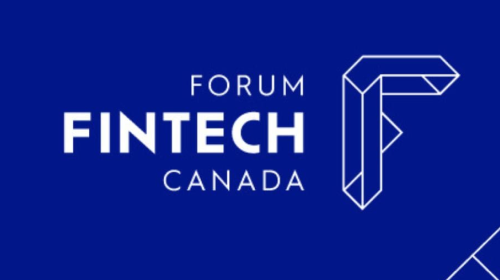Insights Digital & Analytics
President & CEO, Chameli Naraine Recognized by Women in Payments for 2021 Social Impact Award

Evolving digital technologies, shifting consumer preferences, new-breed competition, stringent regulations and spiraling fraud are all creating new challenges for the financial industry. One phishing attack takes place every 30 seconds, 486,000 identity records are compromised every hour and the global cost of Cybercrime is expected to climb to $8 trillion over the next five years. Fraud is at an all-time high. Paradoxically, “Trust”, the hallmark of the financial services industry and the ultimate digital currency is at an all-time low.
The banks must find new ways to expand their services in a new age where staying relevant means playing a more active part in the customer’s digital life. The need to “Reinvent Trust” is also now more paramount than ever before.
Against this disruptive backdrop and the new wave of customer-centricity, Brett King: King of disruptors, will be offering some insights that will help the banks navigate this complex journey and stay ahead in a rapidly changing market, as the keynote speaker at the upcoming 3rd annual COR.SPARK Innovation Summit on November 7th.
Meet Brett King.
Brett King is a futurist, five times Amazon bestselling author, a renowned commentator and globally respected speaker on the future of business and banking. He has spoken in over 50 countries to more than a million people on how technology is disrupting business, influencing behaviour, and transforming society. He was a former adviser to President Obama and the National Economic Council on the Future of Banking. King also hosts "Breaking Banks”, the first global radio show and podcast on FinTech, reaching an audience of 6.5 million listeners in over 170 countries.
Brett King was voted American Banker's Innovator of the Year in 2012, voted the world's #1 Financial Services Influencer by The Financial Brand and has been featured on Fox News, ABC, CNBC, Bloomberg, BBC, Financial Times, The Economist and Bank Technology News. His areas of expertise include innovation, technology disruption, and channel distribution strategy.
I managed to get some quick responses from Brett ahead of his keynote themed Reinventing Banking, Technology as a Disruptor at the Summit.
1. What do you think will be the 3 biggest challenges the financial industry will face in the next 10 years?
While some larger banks with strong digital capabilities continue to grow, smaller banks are finding problems acquiring digital natives and seeing a decline in branch activity and cross-sell upsell. So #1 Acquisition, #2 Digital Engagement, #3 digital-first revenue/cross-sell.
2. In your books, you have strongly expressed that the banks are steadily losing their dominance. Do you ever envisage a world without banks?
Maybe in 100 years or so. But for now, banks need to understand that surviving is not about being good at banking, but good at embedding banking in their customers’ lives through technology.
3. How do you see the evolution of establishing trust? What will be the key drivers of trust in the bank of the future?
New players like AntFinancial, Tencent, MPesa, Amazon, and others have a higher level of consumer trust than the vast majority of banks. Trust in the digital age is tied to banking utility, not to charters or physical presence. If you can provide banking utility consistently, customers will trust you.
4. What advice would you give to a newly appointed Canadian bank executive responsible for fraud detection for the next 10 years?
Machine Learning and data is where it’s at. Today money laundering and identity theft are so sophisticated that a physical face-to-face ID verification is no guarantee of fraud detection. We need algorithms that can identify customers via behavior, heuristics and much broader data sets.
5. Fraud is now an all-time high and is an increasing threat to the banking industry. How can the banks be encouraged to see the need for stronger collaboration and sharing of data in the fight against fraud?
The data we used to use to identify a customer like date of birth, address, etc. are simply no longer securable. If you are limited to the data you can collect on an application form you can’t prevent fraud or protect customers. Banks just don’t have adequate data to do this on their own.
6. How was it advising the Obama administration on Fintech policy and banking? How has the world changed since then?
I could never have imagined visiting the Whitehouse when I was a kid growing up in Oz. Unfortunately, the good work done by the Obama administration on Fintech has ground to a halt in the current administration. The good news is the rest of the world isn’t waiting - 2018 is a record year across every metric. Fintech is rapidly growing and changing the customer behavior from the UK to China and even places like Kenya.
If you would like to watch Brett King speak about the future of banking and the power of Reinventing Trust, kindly register for the 2018 Innovation Summit. Entry is limited and carefully gated due to popular demand, we encourage you to reserve your seat ahead of time.









